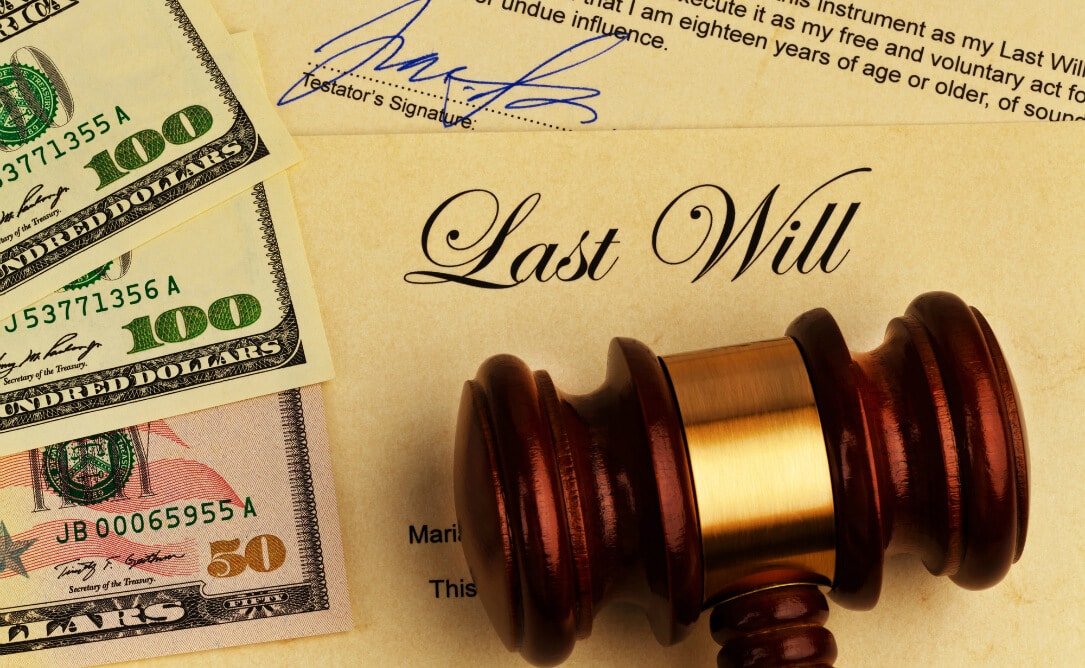Let’s find you an Estate Planning Lawyer.
Answer a few questions so we can find you the most qualified attorneys.
Answer a few questions so we can find you the most qualified attorneys.
Nearly everyone has an estate, no matter how large or small. Your estate consists of everything you own that has value – your home, your car, your investments, your savings accounts, life insurance, jewelry, furniture and other personal possessions. Understandably, most people want to be able to decide who will receive these assets after they pass away. They want to ensure that their valuables are given to the people and organizations they care most about, whether it’s family, friends or certain charities. Estate planning lays out instructions on who these recipients are, what they will receive, and when they will receive it. The decisions made during this process often take into account the opinions of family and friends, as well as the avoidance of taxes and other financial burdens.
Writing a will is often an unpleasant experience for people; it serves as a harsh reminder of their own mortality. Due to this and a host of other reasons, many people delay this task longer than they should. Without a will and estate plan however, default inheritance laws (called intestacy laws) direct how your assets get distributed after you die. In other words, dying with no will puts the state in charge of making decisions about your assets, and their choices may not coincide with your own. A good will leaves little doubt about how to distribute your property and can prevent your heirs from having to go through a protracted trial in court.

During your consultation with an estate planning professional, you’ll need to discuss details such as who will inherit your property, how much they will get, and whether you have alternate beneficiaries. Bring paperwork to show what real estate, vehicles, bank accounts and other assets you own. Try to be as detailed and thorough as possible.
The state of your family plays a significant role in the drafting of a will. If you are leaving property to children or grandchildren, consider the possibility they may still be minors at the time of your death. In such a case, they will need their part put in a trust fund. That means you’ll need to name a competent and loyal person as trustee.
The executor is the person responsible for protecting your property until all debts and taxes have been paid, and making sure what’s left is transferred to the beneficiaries listed in your will. When choosing an executor, consider the person’s character, their ability to handle finances, and whether they have any other problems that may prevent them acting in your best interest.

A will is not the only way to distribute your estate after you die. An estate planning lawyer may recommend that you place your assets in a revocable trust. With such an instrument, a trustee manages the trust for you if you are no longer able to do so yourself. When you die, the property passes to your beneficiaries. This approach carries less long-term cost than going through probate and allows your heirs to avoid a potentially lengthy court proceeding later on. Furthermore, the property held in trust can usually be made available the beneficiaries more quickly.
With a revocable trust, you can terminate it at any time before your death. That is, while you’re living, you can still retain control over your assets. However, if you’re trying to get Medicaid or other government benefits for a nursing home, even the property you put in a trust will be considered available to you and count against your efforts to qualify for Medicaid.
If you establish an irrevocable trust, you relinquish control and the assets generally do not count in determining your rights to assistance. The funds can support your daily living expenses, while the rest is held and distributed at your death. Generally, placing your assets into an irrevocable trust can protect them from creditors. Should you become sued and a judgement is placed against you, that judgment usually does not attach to the property. With the help of an expert attorney who specializes in estate planning and elder law, you can write a trust that has your financial interests at heart.

Power of Attorney documents allow a person to decide who will act on their behalf in the event that they become incapable of making decisions for themselves. With a power of attorney, you select someone you trust (known as your agent) to handle your legal, financial and medical affairs. It can take effect either immediately or it can only take effect after you become mentally incapacitated.
When you are choosing whether to limit your agent’s powers, consider in particular the issue of gifts. As a general rule, your agent is not permitted to make gifts of your property unless your POA expressly grants them such power. If you allow gifting, the agent can make gifts to others in a manner that is similar to what you have already been doing. For example, you may regularly donate to your house of worship or to a charity, and your agent can be permitted to continue that practice. Speak with an attorney who specializes in elder law about these provisions.

Beyond the realm of elder law, limited types of powers of attorney allow others to act for those who cannot look after their finances for temporary periods. Granting such limited authority may best serve you when on military duty or an overseas tour takes you away from ready access to your finances. You can also permit someone to sign a deed on your behalf at a real estate closing, in the event you can’t attend due to other commitments.

Deciding whether to create a living will is perhaps the most serious estate planning decision you will make. This document does not determine how your property is distributed after your death. Instead, it allows you to lay out your end-of-life treatment decisions. For example, it instructs a physician or hospital to withhold measures such as a feeding tube, ventilator or other artificial life support if they conclude that it’s the only thing keeping you alive. Such a document often provides relief for family members who would otherwise be facing difficult, emotional decisions about your end-of-life treatment. Talk to an elder law attorney near you to weigh the benefits and risks of drafting a living will.

Choosing the right estate planning services starts with finding a local law firm that has good experience representing clients in wills and estate cases. You’ll also want to hire a lawyer who has substantial litigation experience, as they’ll be able to help you understand what problems may arise in your own estate plan.
To determine the viability of a prospective law firm, search for ratings and reviews online. The information from these sources can give you a glimpse into the lawyer’s skill-level as well as their level of dedication to answering your questions and concerns about estate planning.
By either searching through a local directory or looking at a law firm’s website, you can learn whether they offer free consultations. Most law firms will indeed offer this as a way to generate new business. Take advantage of this opportunity, as the information gathered can help inform you of your options and their consequences. You’ll also need to get a clear picture of how much their services cost, and whether their fee structure is reasonable and affordable.
